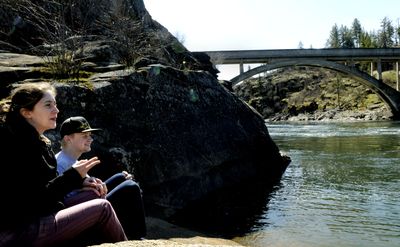March storms top off snowpack
Water supply from runoff foreseen near normal

Good news for irrigators and thrill-seeking rafters.
Below-average mountain snowpacks in the Inland Northwest rebounded in March, thanks to chilly temperatures and late storms that pelted the region with heavy, wet snow. The current snowpack should keep local rivers flowing at 85 percent to 100 percent of normal during the summer months, according to the latest water supply forecast.
In the Northwest, the status of snowpacks is an economic consideration. Mountain snow acts as a reservoir, storing water for the typically hot, dry season ahead. Snowpacks hit their peak by April 1.
Farmers pore over the data, deciding which crops to plant. Whitewater rafting companies consult the information before booking trips, and dam operators use it for projecting hydroelectric output, said Scott Pattee, a water supply specialist with the Natural Resources and Conservation Service.
Throughout the winter, snowpack data is gathered from 69 sites in Washington.
“Statewide, when you average all the basins together, we’re now at 99 percent of normal,” Pattee said.
Conditions vary throughout Washington. A high-pressure system locked over the western part of the state this winter, bringing higher-than-normal precipitation to many areas, Pattee said. But snow and rainfall were scanty in north-central Washington.
Flows in the Cedar River, which supplies Seattle with drinking water, are forecast at 125 percent of average through September. Flows in the Okanogan and Methow rivers are forecast near 60 percent of average.